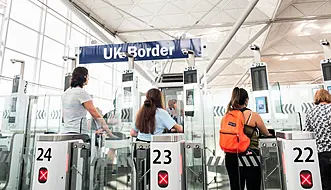The European Commission has launched two new legal proceedings against Britain after London published plans to override some post-Brexit rules governing Northern Irish trade, and resumed another challenge it had previously paused.
The proceedings could result in fines imposed by the European Court of Justice, although these would likely be more than a year away.
European Commission vice-president Maros Sefcovic told reporters in Brussels the UK government had set out to “unilaterally break international law”.
The plan would mean “breaking an agreement that protects peace and stability in Northern Ireland, an agreement reached together only three years ago” by Boris Johnson’s government and the EU.
Mr Sefcovic said: “Let there be no doubt: there is no legal nor political justification whatsoever for unilaterally changing an international agreement.
“Opening the door to unilaterally changing an international agreement is a breach of international law as well.
“So let’s call a spade a spade: this is illegal.”
The Commission's stalled legal action relates to the UK’s unilateral extension of protocol grace periods in 2021. Resuming the proceedings, the EU is issuing the UK with a ‘reasoned opinion’ and giving it two months to respond. If the UK does not respond to the bloc’s satisfaction, it will refer the matter to European Court of Justice.

The two new infringement proceedings announced on Wednesday relate to alleged UK failures around Sanitary and Phytosanitary rules which are checks on agri-food produce entering Northern Ireland from Britain.
The Commission, which oversees relations with former EU member Britain for the 27-member European Union, said it still wanted to resume talks with Britain to resolve difficulties in shipping British products to Northern Ireland.
The region is in the EU single market for goods, meaning imports from Britain are subject to customs declarations and sometimes require checks on their arrival.
The arrangement was set to avoid reinstating border controls between the North and the Republic, which were dropped after the 1998 Good Friday Agreement.







